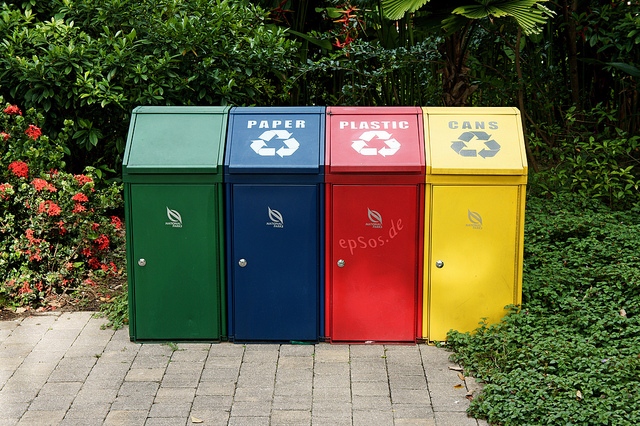Each day recycling helps to keep tons of waste out of ever-increasing landfill sites, this also helps to conserve energy resources through a number of different measures. It is possible to save energy and have a positive impact on the world around you without having to make any significant changes to your routine or spending any extra money.
Composting
Almost 75 per cent of all household waste is recyclable, this includes fruit and vegetable peelings, teabags, egg shells and even some types of cardboard. If these substances are buried in landfill sites biodegradation occurs without the presence of air, letting off harmful methane into the environment. Methane is 20 times more damaging than carbon dioxide. However, if these items are put into a compost heap or compost bin, the present of air changes the way they decompose, meaning methane is no longer realised. Compost is simple to produce and makes an excellent organic fertiliser for garden plants and vegetables.
Greywater
Water is a precious and limited resource and as the population rises the demand of which is increasing day by day. Greywater harvesting is waste water collected from household sources, primarily showers, bathtubs, washing machines and other outlets apart from toilets. Not only will this reduce water uses and ensure no water is wasted, this will also make savings on water bills. This water can then be used to flush a toilet, clean the car or even water the garden.
General recycling
Food packaging, newspapers and many household items can be recycled via regular council collections or at local recycle centres. Using recycled substances to make new items uses 30 per cent less energy than using raw materials.
If you have a large amount of domestic, building or industrial waste, a skip is usually required, using a skip hire company who recycles allows you to get rid of your waste in the most eco-friendly manner without having to sort it yourself. A company who acts in this way will minimise the amount of waste going to landfill and maximise recycling.
Recycling usable items
Everybody has items lying around the home which they no longer want or need. Throwing away these objects may sound like the simple solution but this will only add to landfill sites. Selling these items on internet sites or at local car boot sales will reduce wastage allowing items to be reused and a little money made in the process. Freecycle is a great way to get rid of your unwanted items without having to pay for their removal.
Recycled glass
Everyday we throw away ton upon ton of glass. However this can easily be recycled, reducing air pollution by 20 per cent and increasing the space in landfill. Glass pieces can be crushed and mixed with other raw materials such as ash and sand and then shaped to make new products. Compared to making glass from raw materials alone, recycled glass melts at a lower temperature, making further energy savings.
So by making small changes to our everyday habits we not only reduce landfill but help to conserve energy as the processes and transportation involved with recycling are generally far less energy intensive than sourcing raw materials in the first place.
Las certificaciones energéticas ya son obligatorias en España desde junio del presente año, si usted está obligado a realizar en cualquier inmueble una certificación de eficiencia energética, certificado energético Madrid le explica que es un, como es un certificado energético, de que consta un certificado de eficiencia energética, y en Madrid lo tramita desde el principio hasta el final, consiga su certificado energético de lujo a un precio muy económico, pida presupuesto, y en unos minutos tendrá toda la información necesaria de los certificados de eficiencia energética en Comunidad Madrid
